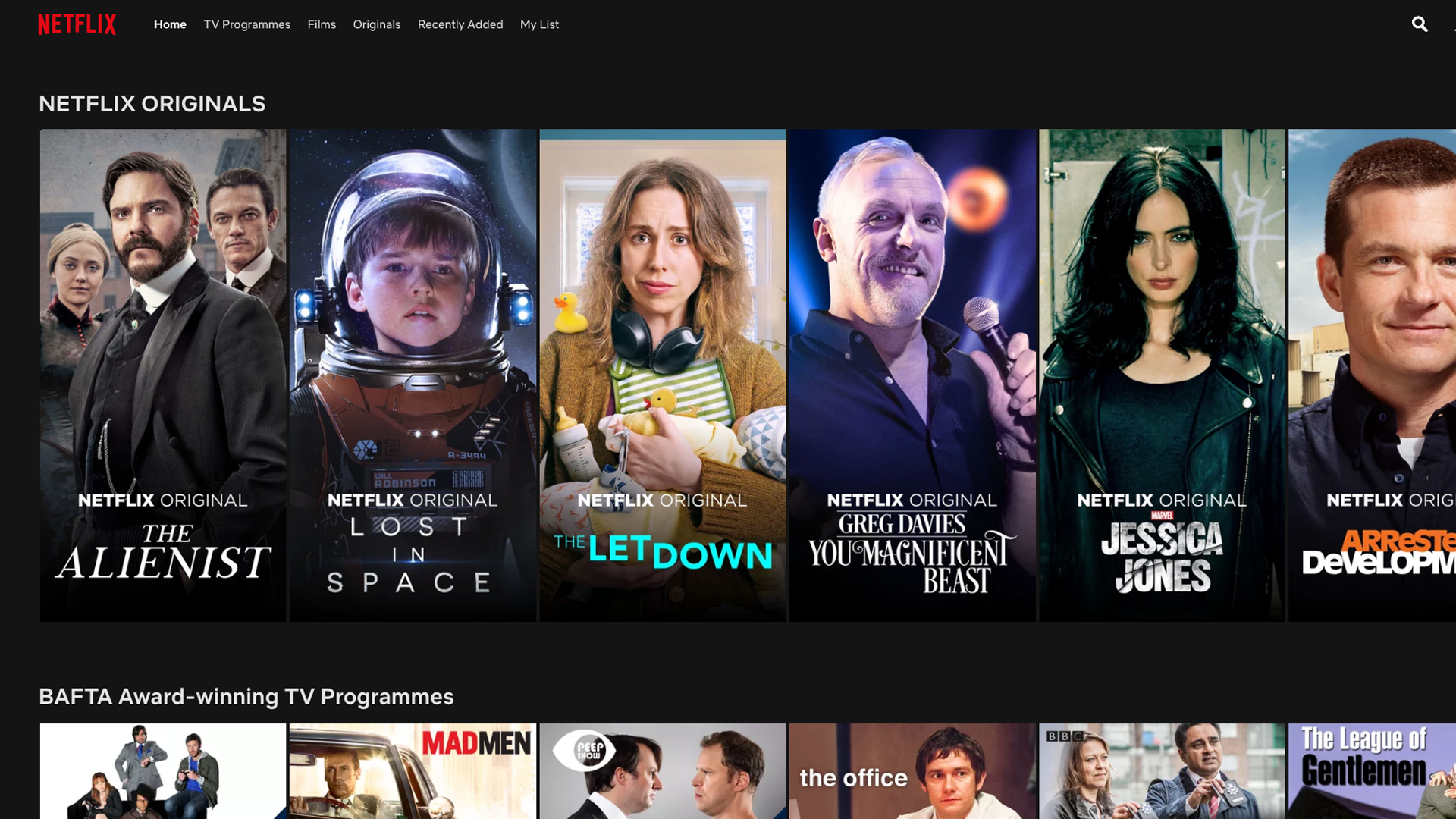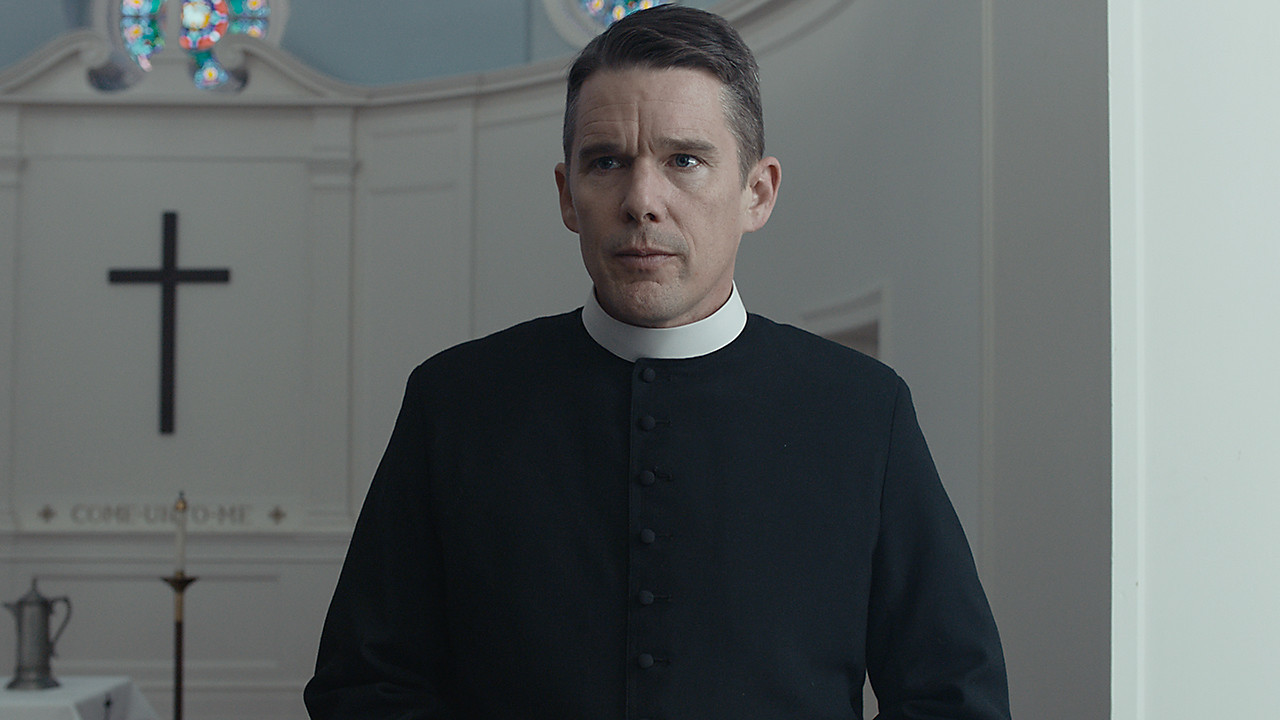Movie 2018 Year in Review: Superheroes rule the multiplex, but will Netflix save mid-budget movies?
Total Film magazine’s Editor-at-Large Jamie Graham looks back on a year in movies in which Marvel won the tussle at the box-office but the real fight was for diversity and better representation on and off screen
Avengers: Infinity War. Black Panther. Jurassic World: Fallen Kingdom. Incredibles 2. Venom. Mission: Impossible – Fallout. Deadpool 2. Ant-Man and the Wasp. When it comes to worldwide box office, the eight highest grossing movies of the year were all franchise movies, further cementing the trend for studios to put the majority of their eggs into just a few gargantuan baskets that cost anything from $150m to $350m to weave.
For some years now, the decline of mid-budget, character-driven dramas has rightly been bemoaned. Even in the high-concept 1980s, Tom Cruise, the world’s biggest movie star, frequently appeared in knotty dramas like The Color of Money, Rain Man, and Born on the Fourth of July. It’s hard to imagine such a thing now, with 2018 doubling down on the ethos that size does matter.
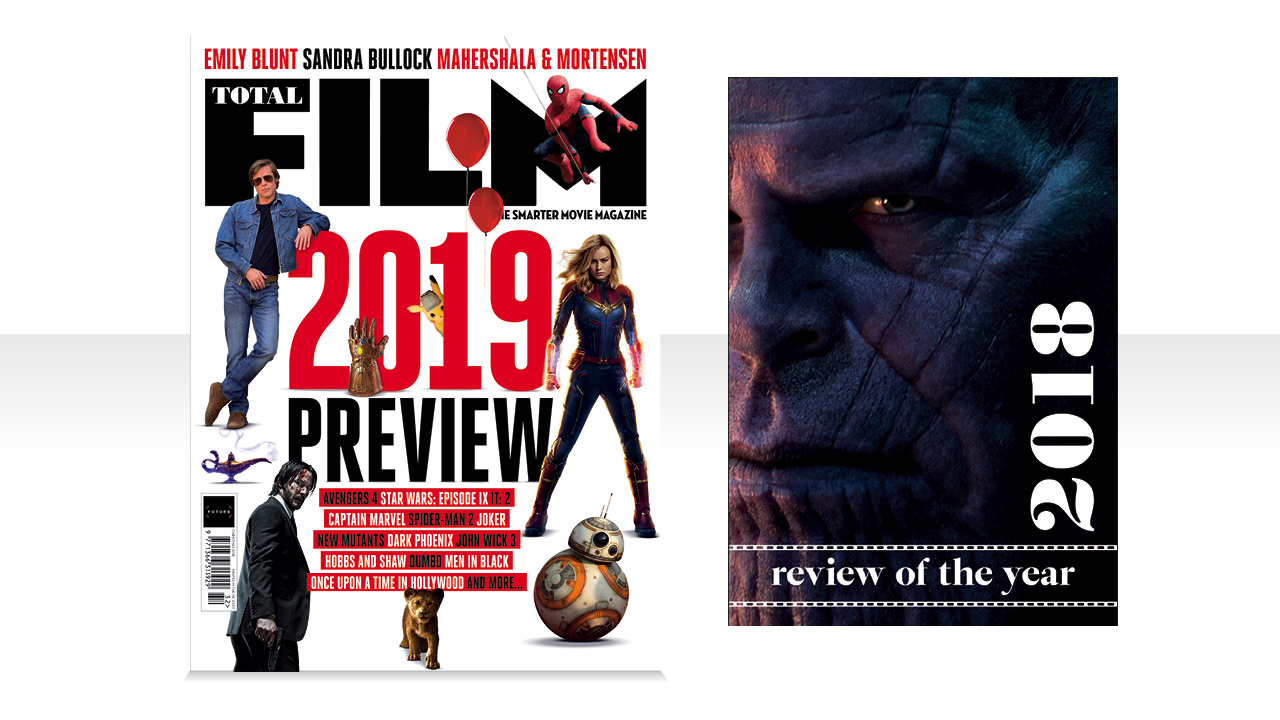
Subscribe to Total Film magazine and get your film fix every month with a digital or print version of the mag delivered straight to you door
“Franchise movies have never been so dominant – and there's no question they're squeezing everything else out of the market,” says Richard Edwards, Editor of SFX magazine. “There are still wonderfully creative movies being made elsewhere – this year's list of Oscar-nominated films was incredibly strong – but it's undeniably harder for them to make a big mark at the box office.”
Not that the domination of sequels, spin-offs, and movie ‘universes’ signals a complete dearth of originality on Hollywood’s part. As Jane Crowther, Editor-in-Chief of Total Film magazine, points out, “Thanks to the likes of the Marvel Cinematic Universe and Star Wars, the quality of blockbuster movies has arguably never been higher.” Indeed, the release of Avengers 4: Endgame in April will draw a line, of sorts, under an extraordinary run of more than 20 Marvel movies that have painstakingly taken us towards this point, this showdown, with a great deal or intelligence and emotion to buffer the bar-raising action. In years to come, the 2008-2019 MCU will surely be looked back upon as a golden age for tent-pole movie-making.
Questions of quality
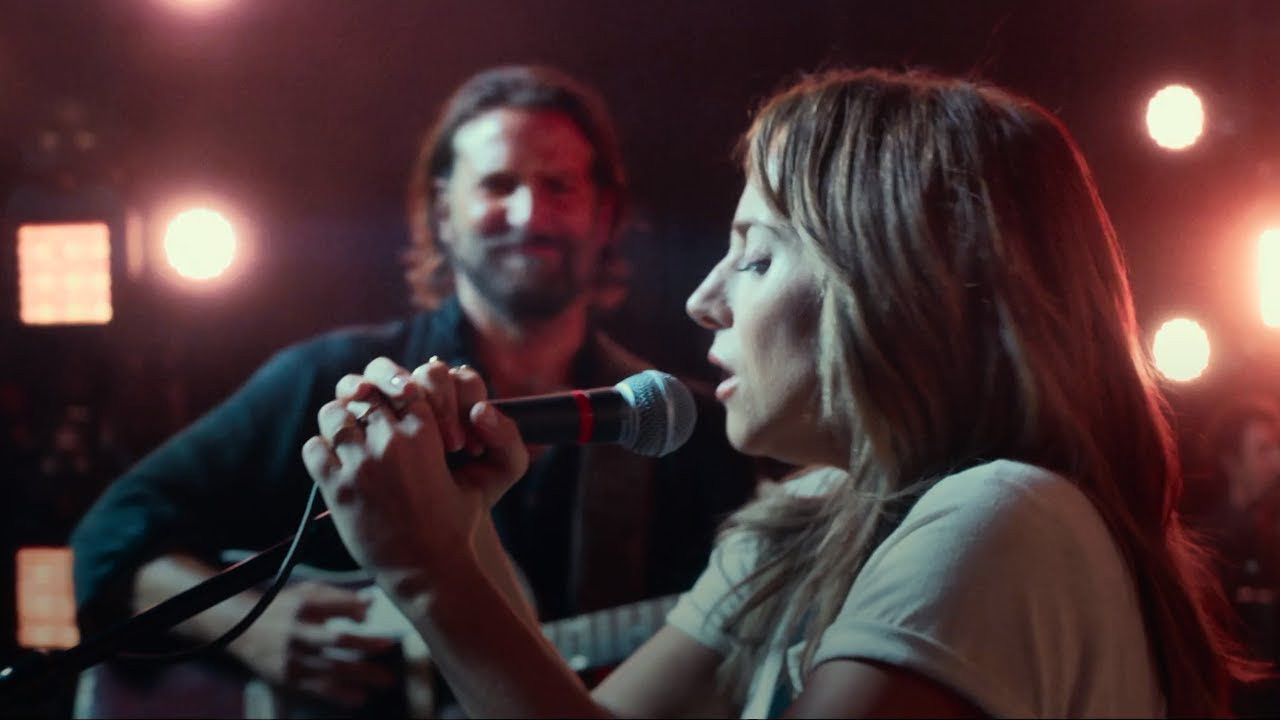
Besides, trading on a recognisable brand is not, in itself, enough. Quality still has a big part to play, as 2018 proved by giving us a string of poor remakes and reboots that failed to ignite audience passions. Death Wish, Ocean’s 8, Tomb Raider, Predator, Robin Hood, The Girl in the Spider’s Web… all underwhelmed and underperformed. Bradley Cooper’s heartfelt A Star is Born, meanwhile, has taken $376m from a £36m budget at the time of writing, with a stack of awards surely shimmering in its immediate future. Not bad for a fourth telling of the story.
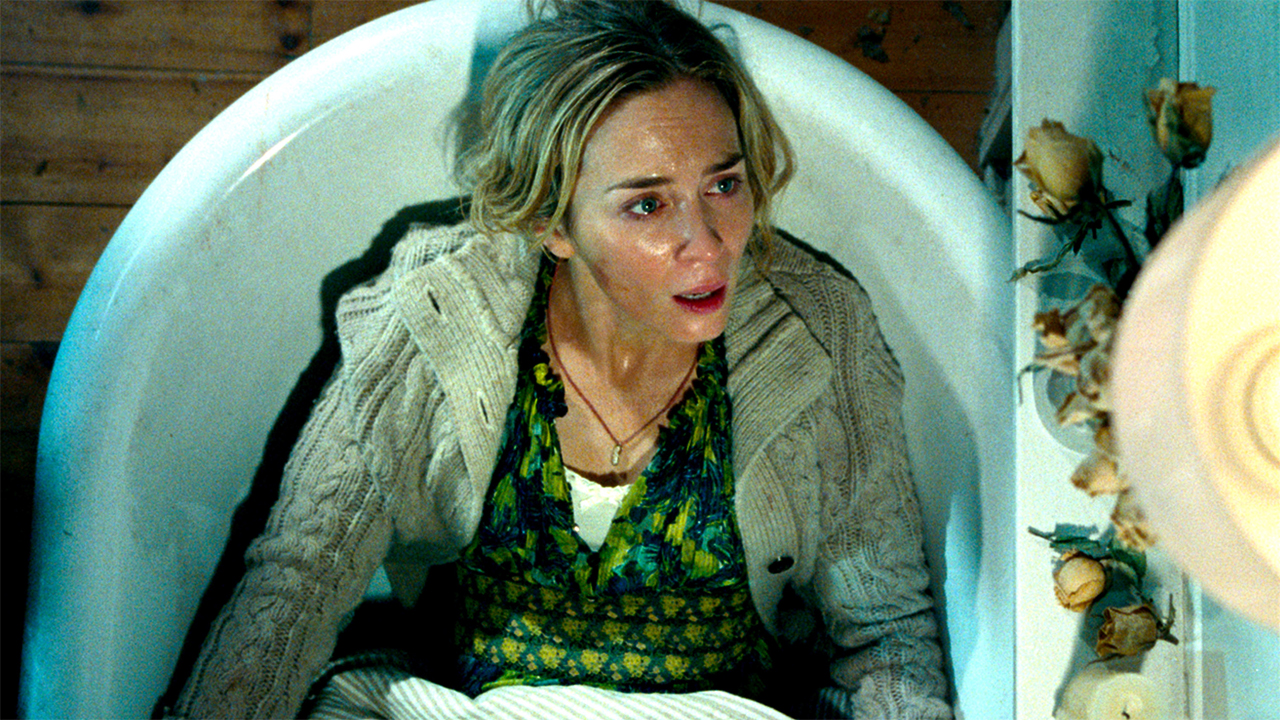
The 25 best movies of 2018
And anyone fearing that Hollywood’s behemoths are dominating every inch of multiplex screen space need only look at the depth of quality indies and foreign-language fare released this year. First Reformed, You Were Never Really Here, Widows, Climax, Leave No Trace, Mandy, A Prayer Before Dawn, Beast, The Rider, Western, Custody, Summer 1993, Burning, Lucky, and Love, Simon are just a few of many, many quality titles – you just need to look a little harder sometimes to find them.
And can we really complain at that? Not when a studio makes such a miraculous film as First Man, starring Ryan Gosling as Apollo 11 astronaut Neil Armstrong and directed by La La Land’s Damien Chazelle, only for it to experience a failure to launch at the box office.
Sign up to the SFX Newsletter
Get sneak previews, exclusive competitions and details of special events each month!
Netflix rules
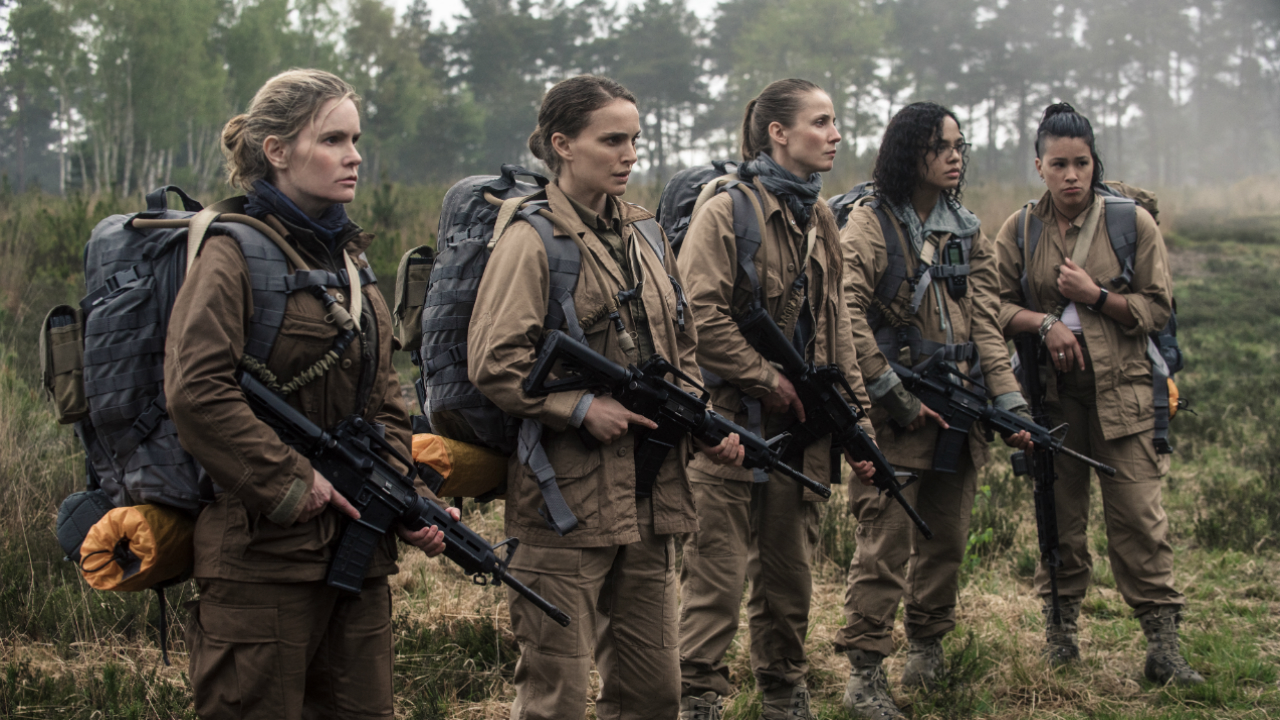
With studios going big, the hunger for smaller, more intimate tales is being catered for elsewhere. Netflix has been the industry’s upstart cousin for a number of years now, but 2018 saw the Californian streaming service clamouring for a seat at the head of the table. OK, so the Cannes Film Festival struck a blow to Netflix by refusing to allow any of their heavyweight titles to vie for the Palme d’Or – all competing films must have a theatrical release in France, and 36 months must then pass before they become available on home viewing platforms; like Netflix would agree to that – but Alfonso Cuarón’s Roma, which is new on Netflix now, won the top prize at the Venice Film Festival.

The 25 best movies on Netflix you can watch right now
What’s more, Roma was just one of a host of movies by name directors to migrate to Netflix, with Alex Garland’s Annihilation, Nicole Holofcener’s The Land of Steady Habits, Jeremy Saulnier’s Hold the Dark, Tamara Jenkins’s Private Life, Paul Greengrass’s July 22, Gareth Evans’s Apostle, the Coen brothers’ The Ballad of Buster Scruggs, and Andy Serkis’s Mowgli: Legend of the Jungle all beaming straight into living rooms. Martin Scorsese’s $180m mob epic The Irishman, starring Robert De Niro, Al Pacino, Harvey Keitel, Joe Pesci, and Anna Paquin, is primed for 2019.
“The festival has chosen to celebrate distribution rather than the art of cinema; we are 100% about the art of cinema,” said Netflix’s Chief Content Officer Ted Sarandos about the Cannes dispute. It was a battle cry that many filmmakers clearly agree with, knowing that they will be gifted the budgets required to realise their long-cherished projects, and that millions of eyeballs will focus on their work rather than having it play to small audiences at selected cinemas in major cities.
Distribution deal
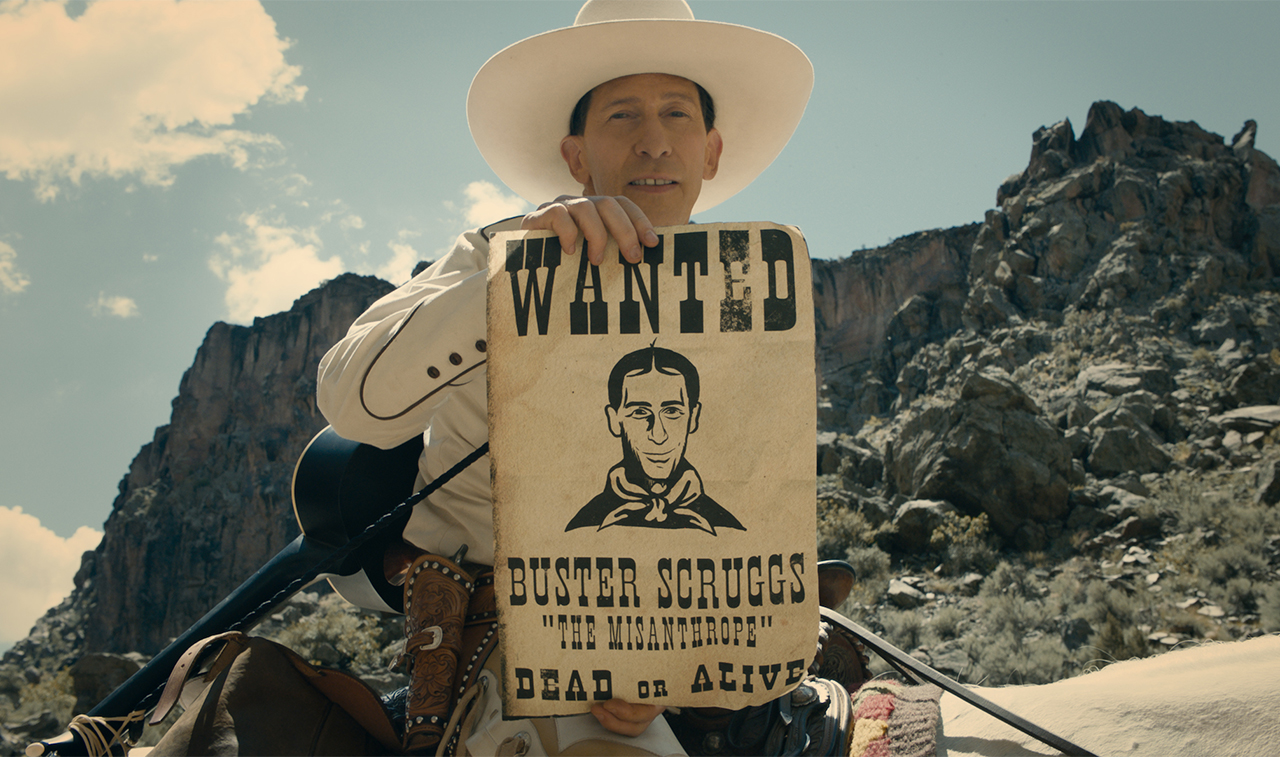
“Netflix is supporting, or acquiring after they have been made, features that studios no longer feel confident backing because of the economic risks and challenges around theatrical distribution,” says Matt Mueller, Editor of industry bible Screen International. “Netflix’s ‘disruptor’ model is based on instant accessibility… they aren’t interested in adhering to the traditional windowing models that cinemas argue they need to survive. However, even Netflix craves the associated kudos and awards acclaim that can come with working with auteur filmmakers like Cuarón, hence supporting a small international cinema release for Roma and launching that film at an A-list film festival like Venice.”
“Tradition may just have the last laugh, with Netflix bowing to industry pressure to give Roma, The Ballad of Buster Scruggs, and more cinema releases so they qualify for big movie awards,” reiterates Edwards. “These young upstarts are changing Hollywood, but the old guard aren't moving over without a fight.”
That said, Netflix was announced, in May, to have a market capitalisation of $152.5bn, buoyed by its 130m subscribers. This number makes it bigger than Disney – some feat given the latter are the biggest film studio, owning Marvel, LucasFilm, and Pixar.
And it’s not just Netflix. Generation Z wants the choice to mainline their movies as they see fit, and sites such as Amazon Prime, iTunes, Hulu, HBO Go/HBO Now, Crackle, Popcornflix, Vudu, and YouTube are providing the option for viewers to manage the environment in which they consume films.
Cinema for all
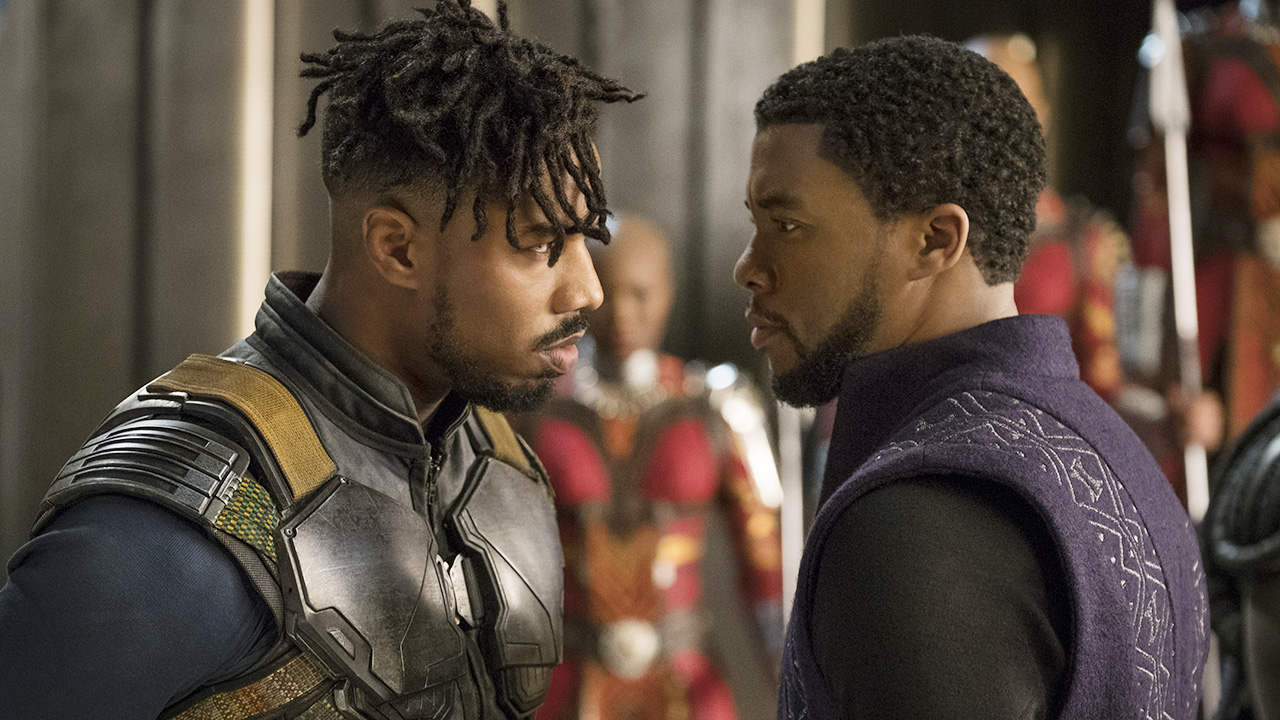
The issues of diversity and representation have been hot topics in Hollywood for a few years now, with #OscarsSoWhite, #MeToo, and #TimesUp sparking debates and, hopefully, sea changes.
While the 2018 Oscars again saw the Best Actress, Best Actor, Best Supporting Actress, and Best Supporting Actor go to white performers, the 20 nominations over all four categories included four black actors in Denzel Washington, Daniel Kaluuya, Mary J. Blige, and Octavia Spencer – hardly great, and down on the seven non-white faces of 2017, but better than the all-white lists of 2015 and 2016.
The Academy of Motion Picture Arts and Sciences has made significant steps to broaden its pool of voters in the last four years, placing a welcome emphasis on diversity as it’s invited 2, 707 inductees to join a body of voters that previously totalled under 7000. But the bigger issue is the lack of representation on and behind the camera.
This year saw a couple of strides towards changing that, with Black Panther, featuring a black director and a predominantly black cast, becoming the fourth biggest Marvel movie to date ($1.3bn), and Crazy Rich Asians, the first Hollywood film to feature an all-Asian cast since The Joy Luck Club in 1993, taking $238m from a $30m budget in an age where the big-screen romcom is considered all but dead. But these success stories are only a start, and there remains a great distance to go.
“At the moment, these two films are outliers,” says Mueller. “But the huge success of both films on the international stage at least will encourage more moves in that direction.”
Edwards agrees. “Nobody should be starting the celebratory backslapping just yet, but 2018 has definitely been a step in the right direction. Even more than Wonder Woman last year, Black Panther has the potential to be a genuine game-changer – it's the highest grossing film of the year in the US, pulling in the sort of money that makes it impossible for Hollywood to ignore a demographic that, up to now, has been criminally underrepresented on screen. Marvel's all-conquering Cinematic Universe had so far been somewhat overloaded with white men, but Black Panther signalled an intention to make amends – and hopefully its huge success this year will make others follow suit.”
Women in Hollywood
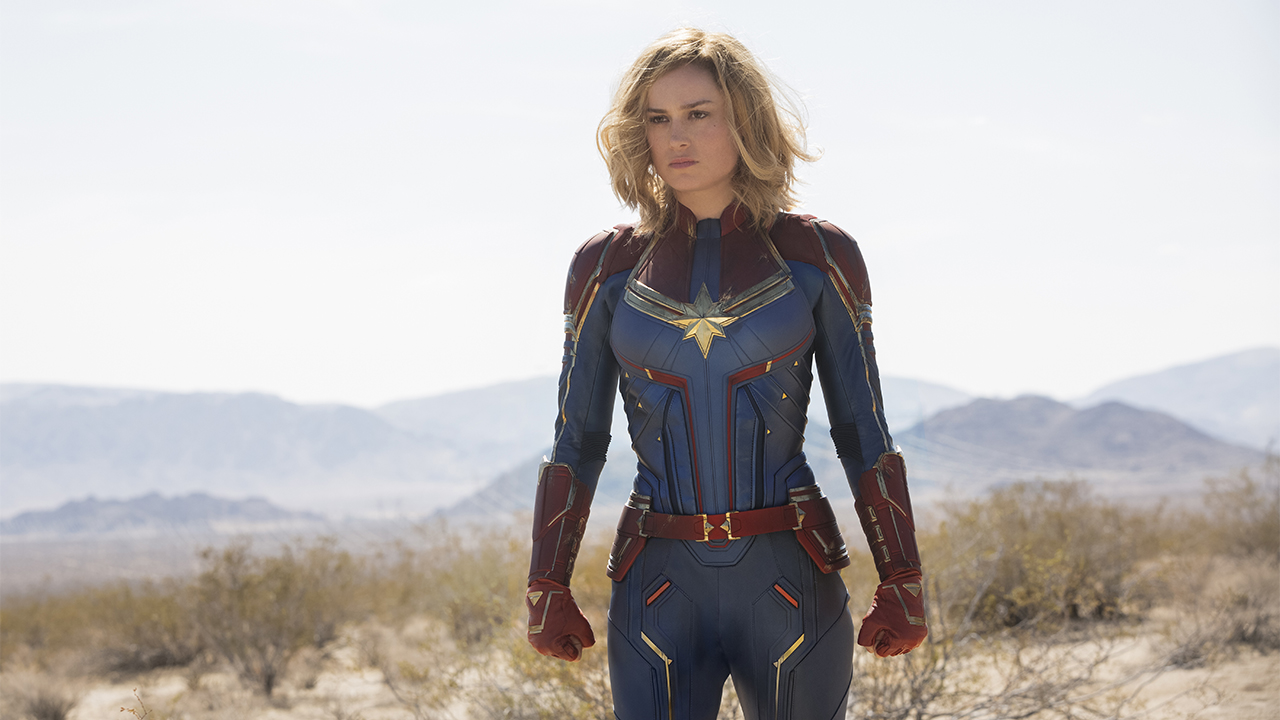
Also under the microscope is patriarchal Hollywood, with the highlighting of the abominable abuse of power practised by Harvey Weinstein and many more instigating a courageous stand. Not only will such ingrained behaviour no longer be tolerated, but the 50/50 by 2020 movement calls for women to occupy their share of roles, on screen and off.
“Both [#MeToo and #TimesUp] have made a huge impact in opening up discussion and for making inequality something that remains newsworthy,” explains Crowther. “There's still a long way to go to get to gender parity, but the fact that inclusion riders are a real thing and not a unicorn idea, that actors like Brie Larson are using their platforms to affect change from critics to designers to film crews, and that everyone is more aware of the issues, gives me hope that meaningful change is within grasp.”
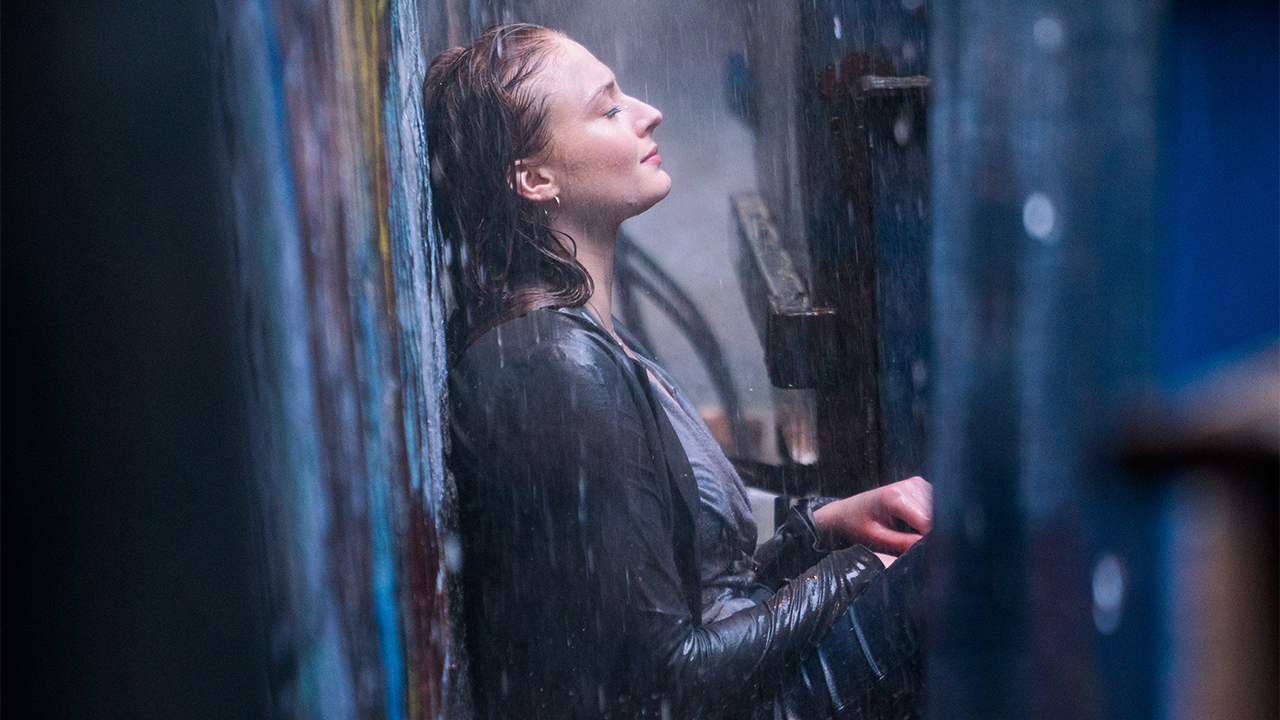
The most anticipated upcoming movies of 2019 and beyond
“It’s had a huge impact throughout the industry and society as a whole in terms of the conversation around acceptable behaviour and workplace practices and people being far more aware of conscious (or unconscious) bias,” says Mueller. “Some behaviour will clearly no longer be tolerated, and rightly called out when it takes place. But has the number of female directors or women in positions of power in the industry changed? Not noticeably, but that will take time. Awareness is the first step and the conversation is very tuned in now to bringing about real, long-term structural change.”
Of course, the above are only a few of the themes that shaped 2018 at the movies – we haven’t even touched upon the raging debate surrounding the term ‘elevated horror’ (in short, there is no such thing, only horror, and to say otherwise is snobbery), the retirements of silver-screen icons Robert Redford and Daniel Day-Lewis, the sad passing of legends such as Stan Lee, Harry Dean Stanton, Burt Reynolds, Margot Kidder, Milos Forman, Nicolas Roeg, Bernardo Bertolucci, William Goldman, and Penny Marshall, the roaring comeback of Nicolas Cage in Mandy, Mom and Dad, Looking Glass, Teen Titans Go! to the Movies, and Spider-Man: Into the Spider-Verse, or, indeed, the proliferation of ‘man’ movies that didn’t even feature superheroes – Early Man, First Man, Padman, Journeyman, Iceman, Slenderman, BlacKkKlansman, Dogman.
Safe to say, though, it’s been a rousing, action-packed year. Let’s hope 2019 can match it.
Jamie Graham is the Editor-at-Large of Total Film magazine. You'll likely find them around these parts reviewing the biggest films on the planet and speaking to some of the biggest stars in the business – that's just what Jamie does. Jamie has also written for outlets like SFX and the Sunday Times Culture, and appeared on podcasts exploring the wondrous worlds of occult and horror.
